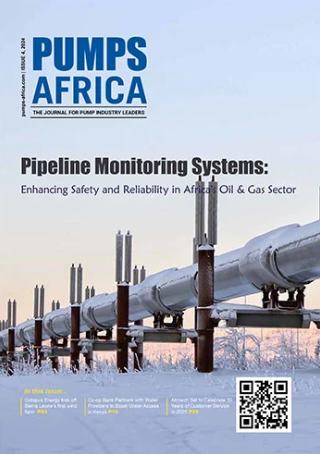The pump industry in Africa is a crucial sector with wide-reaching impact, particularly in agriculture, water supply, mining, and oil and gas. However, regulatory changes often create complexities for industry players, especially given Africa’s diverse regulatory landscapes. In recent years, evolving standards, new sustainability requirements, and increasing government oversight have added layers of compliance challenges for companies and manufacturers in this sector. This article explores how companies can navigate these regulatory shifts, highlighting real-life case studies of industry players that have adapted effectively to regulatory changes in Africa.
Table of Contents
ToggleThe Evolving Regulatory Landscape in Africa
Each African nation has distinct regulatory demands for industrial sectors, including the pump industry. Some countries, like South Africa and Egypt, have well-established regulatory frameworks, while others are still in the process of developing regulations specific to environmental impact, safety standards, and local content requirements. The disparities create both challenges and opportunities for industry players, who must stay vigilant and flexible in responding to regulations.
The key regulatory areas affecting the pump industry across Africa include:
- Environmental Compliance: Many African countries are now adopting environmental regulations aimed at reducing carbon footprints and improving water conservation. This is especially important in water-scarce countries where resource management is critical.
- Safety Standards: Governments are setting higher safety benchmarks for equipment manufacturing and installation, impacting how companies source, test, and deploy pumps.
- Local Content Requirements: Some nations now require foreign companies to collaborate with local firms or source a portion of their materials locally, fostering local industry growth.
- Licensing and Certification: Different permits and certifications are required for installation, maintenance, and service, varying from country to country.
Adapting to Environmental Standards in South Africa
South Africa has stringent environmental standards, particularly for water-intensive industries. The water pump industry is essential in this region, supporting both agriculture and mining. However, government initiatives now require companies to reduce their environmental impact through efficient technology and sustainable practices.
A prominent player in this sector, Xylem Africa, provides an example of how companies are adapting. With a focus on water efficiency, Xylem introduced the “Intelligent Pump” technology designed to conserve energy and minimize water wastage. This system uses sensors and automated controls to optimize water use, reducing waste in agricultural irrigation and urban water systems. Xylem’s proactive approach aligned with South African regulations on water conservation and has strengthened its position in the market as an eco-conscious provider. This case demonstrates the benefits of embracing green technologies to comply with environmental standards, enhancing a company’s reputation and market share.
Meeting Safety Standards in Nigeria’s Oil and Gas Sector
Nigeria, Africa’s largest oil producer, has a thriving market for industrial pumps, particularly in the oil and gas sector. However, pump manufacturers and suppliers face strict safety regulations to minimize the risks of hazardous spills and leaks. The Nigerian government mandates that equipment used in the oil sector adhere to specific safety certifications, pushing companies to invest in quality control and advanced safety technologies.
Grundfos, a global pump manufacturer, took significant steps to meet Nigeria’s safety standards. They developed specialized pumps that adhere to rigorous safety certifications, ensuring resistance to corrosive chemicals and pressure fluctuations commonly encountered in oil extraction. Grundfos also invested in employee training for handling and installing these high-spec pumps, thereby enhancing compliance and safety outcomes on the ground. By proactively meeting Nigeria’s safety standards, Grundfos has established itself as a trusted supplier in a critical sector, setting a high bar for quality and compliance.
Navigating Local Content Requirements in Ghana’s Mining Sector
The mining industry is an essential driver of Ghana’s economy, and pumps are critical in operations like mineral extraction and wastewater management. However, the Ghanaian government has implemented stringent local content regulations requiring foreign companies to partner with local businesses and source a portion of their equipment or services from Ghana-based suppliers.
For instance, KSB Pumps, a German-based pump manufacturer, expanded into Ghana by partnering with a local engineering firm to fulfill the local content requirements. This collaboration allowed KSB to leverage local expertise while supporting Ghana’s economic objectives. Additionally, KSB engaged in knowledge transfer, training Ghanaian engineers in pump maintenance and operation, ultimately contributing to local skill development. Through strategic partnership, KSB strengthened its market position in Ghana and ensured compliance with government regulations.
Strategic Approaches for Navigating Regulatory Challenges
From these examples, it is clear that industry players in the African pump market must adopt flexible and strategic approaches to comply with various regulatory demands. Here are some key strategies:
- Invest in Regulatory Intelligence: Understanding regulatory requirements in each target market is essential. Companies can benefit from hiring compliance specialists or partnering with local regulatory experts to navigate complex rules effectively.
- Innovation in Product Design: Developing eco-friendly and safety-compliant products can help companies address regulatory requirements while enhancing brand value. For instance, intelligent pumps with automated control systems can aid in water conservation, reducing a company’s environmental footprint.
- Building Local Partnerships: In regions with strict local content requirements, partnering with local firms is crucial. These alliances can facilitate compliance and provide local knowledge, which is invaluable for navigating the regulatory landscape.
- Continuous Training and Development: Regulations evolve, and so must the skills of a company’s workforce. Regular training for employees and local partners ensures that teams stay updated on compliance protocols and best practices.
- Engaging with Regulatory Bodies: Proactive engagement with local authorities helps companies stay informed of upcoming regulatory changes and provides opportunities to give input on industry-related issues.
Real-Life Impact: Compliance as a Competitive Advantage
While regulatory changes in the African pump industry can be challenging, companies that proactively adapt often gain competitive advantages. Compliance can open doors to new market opportunities, foster consumer trust, and enhance brand reputation. Companies that prioritize regulatory adherence build strong foundations for long-term growth, especially in sectors where safety and environmental impact are heavily scrutinized.
Example in Water Conservation: An emerging Kenyan company, EcoPump Africa, is making headway by designing pumps that use up to 30% less water than conventional models, addressing Kenya’s increasingly stringent water-use regulations. Through product innovation aligned with regulatory goals, EcoPump is establishing itself as a frontrunner in sustainable solutions. This has not only improved its market reach but has also earned recognition from local authorities, which has further boosted its market credibility.
Looking Ahead: Future Trends in Regulatory Compliance
As Africa continues its industrial growth, regulatory standards in the pump industry are likely to become stricter, with greater emphasis on sustainability and safety. Emerging areas of regulation that companies should monitor include:
- Digital Compliance Standards: As digital technologies in pumps (like IoT) become more common, governments may introduce new standards for data security, especially in urban water management systems.
- Energy Efficiency Requirements: Regulations aimed at reducing carbon footprints may soon extend to require higher energy efficiency standards for all industrial pumps, pushing companies to invest in energy-saving innovations.
- Waste Management: Regulations on water waste disposal are evolving, particularly in countries with water scarcity issues. Companies may soon face strict requirements on wastewater treatment and recycling.
Navigating regulatory changes in Africa’s pump industry is a complex task, requiring companies to be vigilant, flexible, and innovative. Real-life examples, like Xylem’s eco-friendly pumps in South Africa, Grundfos’s safety-compliant pumps in Nigeria, and KSB’s local partnerships in Ghana, illustrate how proactive adaptation can lead to market success. With Africa’s regulatory environment expected to tighten in the coming years, companies that invest in compliance today will likely reap benefits in the form of trust, credibility, and expanded market access.
Ultimately, regulatory compliance should not be seen as a hurdle but as an opportunity to innovate, align with local priorities, and contribute to sustainable development across Africa. By adopting forward-thinking strategies, companies can not only thrive in the changing regulatory landscape but also lead in setting industry standards for safety, sustainability, and local economic impact.







